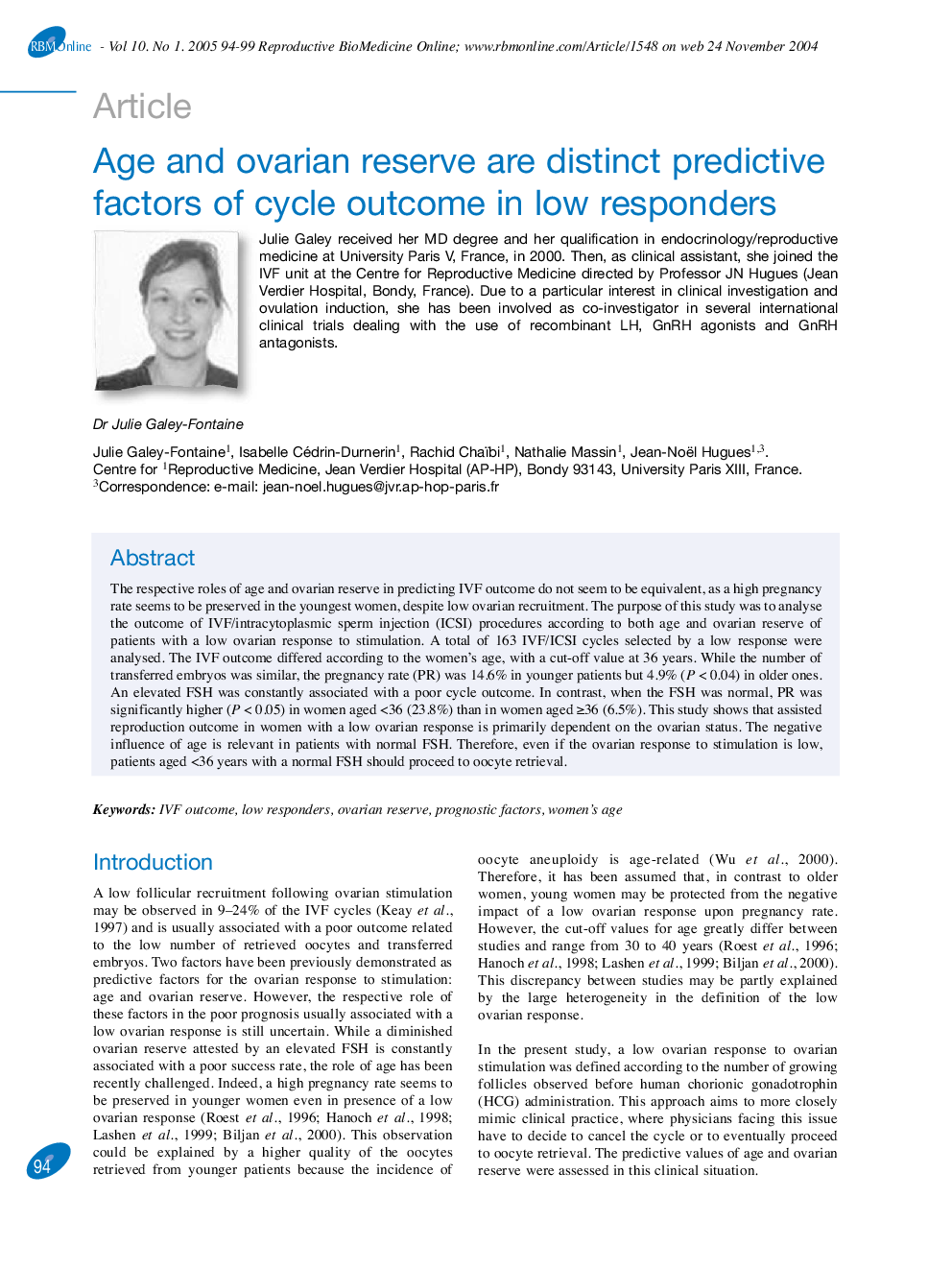| Article ID | Journal | Published Year | Pages | File Type |
|---|---|---|---|---|
| 9334928 | Reproductive BioMedicine Online | 2005 | 6 Pages |
Abstract
The respective roles of age and ovarian reserve in predicting IVF outcome do not seem to be equivalent, as a high pregnancy rate seems to be preserved in the youngest women, despite low ovarian recruitment. The purpose of this study was to analyse the outcome of IVF/intracytoplasmic sperm injection (ICSI) procedures according to both age and ovarian reserve of patients with a low ovarian response to stimulation. A total of 163 IVF/ICSI cycles selected by a low response were analysed. The IVF outcome differed according to the women's age, with a cut-off value at 36 years. While the number of transferred embryos was similar, the pregnancy rate (PR) was 14.6% in younger patients but 4.9% (P < 0.04) in older ones. An elevated FSH was constantly associated with a poor cycle outcome. In contrast, when the FSH was normal, PR was significantly higher (P < 0.05) in women aged <36 (23.8%) than in women aged â¥36 (6.5%). This study shows that assisted reproduction outcome in women with a low ovarian response is primarily dependent on the ovarian status. The negative influence of age is relevant in patients with normal FSH. Therefore, even if the ovarian response to stimulation is low, patients aged <36 years with a normal FSH should proceed to oocyte retrieval.
Related Topics
Health Sciences
Medicine and Dentistry
Obstetrics, Gynecology and Women's Health
Authors
Julie Galey-Fontaine, Isabelle Cédrin-Durnerin, Rachid Chaïbi, Nathalie Massin, Jean-Noël Hugues,
